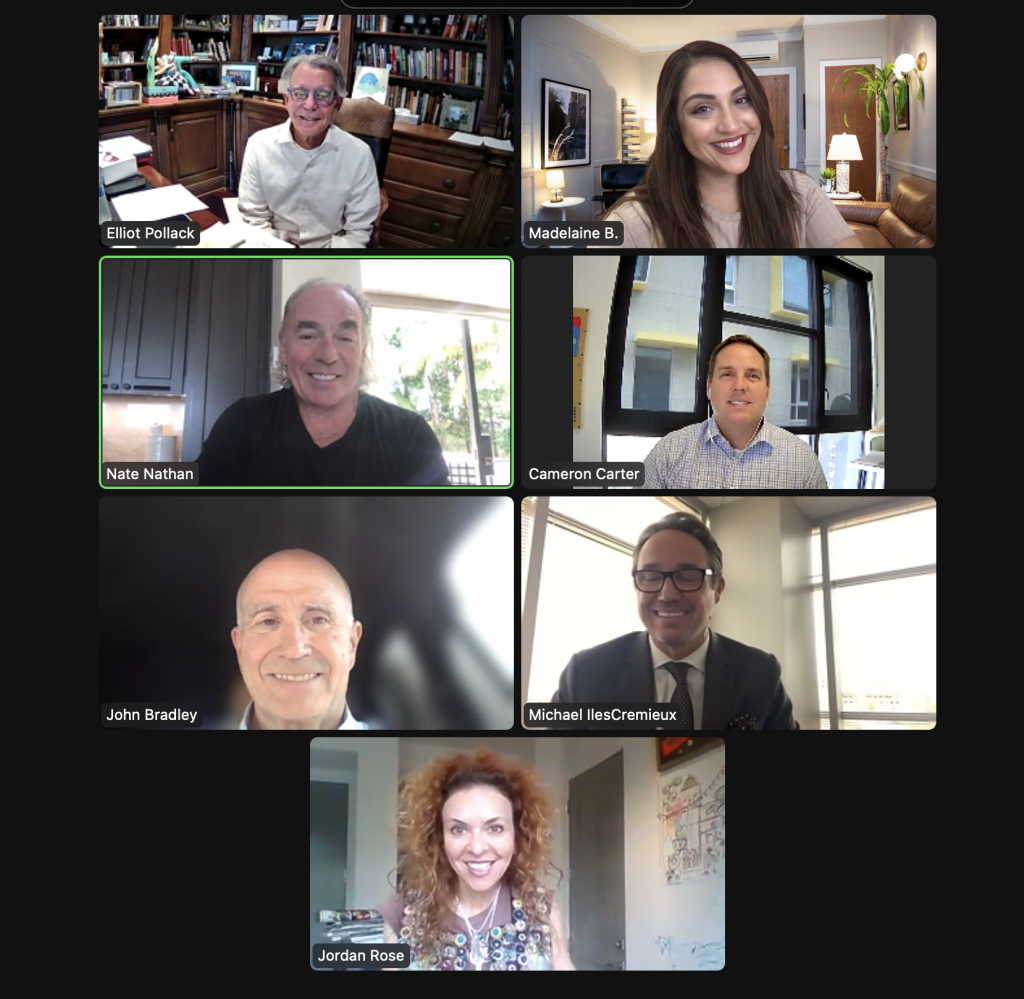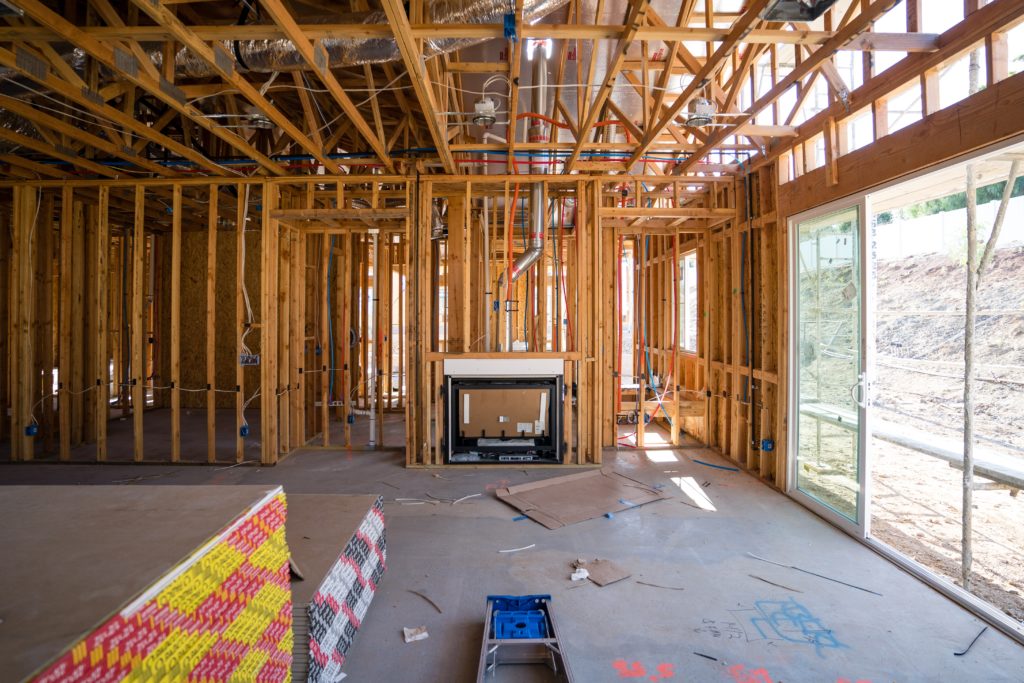
Why ‘The Great Deceleration’ of today’s economy is nothing for homebuilders to fear
By Madelaine Braggs | Rose Law Group Reporter
The take away from the latest Rose Law Group Power Lunch, attended by over 300 market leaders, was that this current market is more of a “deceleration” clouded by “cynical B.S.” than a concerning threat to the Arizona real estate market.
With mixed-messages in market headlines, Rose Law Group Founder and President Jordan Rose decided it was time to revive the popular virtual event, which she moderated Thursday with Director of Real Estate Transactions Cameron Carter.
“Perhaps, if we discuss as a community whatever is happening early enough, we can figure out how to make sure the market trajectory is something that is ultimately good,” Rose said.

Elliot D. Pollack, CEO of market data firm Elliot D. Pollack & Co., is also feeling positive, saying we could actually see the economy go back to normal by the end of next year. “We’re essentially going to have a slowdown, not too deep, but a prolonged one.” However, he premises that bounce back saying it will only be true “as long as The Fed doesn’t give up.”
Inflation will only get worse if The Federal Reserve continues to selling off treasury bonds, increasing the supply of money in circulation, thus making the value of each dollar less valuable. More stimulus packages would also further exacerbate inflation, even if providing temporary relief for consumers.
John Bradley, President of Arizona Land & Housing, Brookfield Properties, says when he looks at the economy, his main concern is also The Fed’s interest rate increases. “The Fed now has this tool to directly affect mortgage rates, which they’ve never used before. Mortgage backed securities are being reduced. I think that means rates are not going to come down. Maybe they won’t go up, but they’re definitely not coming down. This has huge impacts on the market,” he said.
The Arizona housing market exploded in the tail-end of the pandemic, but with increased interest rates and inflation scaring off buyers, many builders are wondering if the party’s over. Meanwhile, a core demographic for potential buyers (millennials) are widely crossing their fingers for a market crash in hopes that will reduce housing prices.
Nate Nathan, President and Designated Broker of Nathan & Associates, Inc. says the market may be slowing down right now, but we’re not in the same boat as the ’08 housing market.
“I’ve lived through six downturns this is unlike any of the other ones, it’s not too screwed up. We’re not going into this with 20-thousand finished lots, with fake homes, fake jobs, fake mortgages. This is a different Arizona… I think we are positioned to just go crazy in the next 6-8 months.”
Nathan says the state of the real estate market right now is similar to the first 60 days of the pandemic, a temporary stagnation that is already starting to recover with price reductions in supplies and materials. “We have the population growth, we have the job growth, there’s no standing line inventory.” He expects demand to come back and when it does, the current lot inventory will be ready.

Real estate data analytics firm CoreLogic assessed the likelihood of regional home price declines based on various factors including population growth, employment growth and unemployment rates. According to them, Maricopa and Pima counties have very low odds of home prices dropping over the next year.
“It’s less of a seller’s market right now… but it’s still a seller’s market,” said Pollack. He predicts builders are going to start constructing smaller house on smaller lots. “Cluster houses,” he calls it.
While he believes the housing market supply-demand is out of balance, he assures consumers this is not a permanent situation. “The average recession since World War II lasts about 12.6 months. Unless something unusual happens, [the uncertainty of the market] should be over by late 2023.”
Michael “Frenchy” Ilescremieux, Regional President for Richmond American Homes Phoenix East/Phoenix West/Tucson/Austin/NewMexico Divisions, also says they’re starting to bounce back from the temporary craze, but felt the pinch from The Fed’s rate move.
Here’s a look at their Phoenix Divisions sales pace this year:
- January: 219
- February: 224
- March: 152
- April: 108
- May: 129
- June: 98
- July: 91
From this data, you can see sales were strong early 2022, but dipped once interest rates increased in March. “Our most price sensitive buyers were priced out of the market with the increase in mortgage rates,” Ilescremieux said. Still, Richmond’s gross sales in July are ranked in the top 3 builder group in the Phoenix metro.
Richmond had only 11 cancellations in January, but by June cancellations were at 48% and 40% in July. Last year, 6% of their home builds were canceled, compared to 20% cancellations this year.
Despite the increase in cancellations, Frenchy says, “There are a lot of positive things happening in the market as well. If you go on YouTube, videos say we are going into a depression, or we are entering into the worst recession in history. Everything is so hyperbolic. But the market still has strong demand and Phoenix is massively undersupplied with housing. We are poised to take advantage of this market deceleration. We are optimistic and most importantly open for business.”
So, are we doomed to recession? Perhaps not. The Rose Law Group Power Lunch panel instead declared the state of Arizona’s housing market: “The Great Deceleration.” The economists say this is a good thing, a necessary slowdown that gives the supply chain, especially the labor sector, a chance to catch up to demand.
“We’re all in this together and that’s the attitude I’m telling my sellers to have,” said Nathan.





